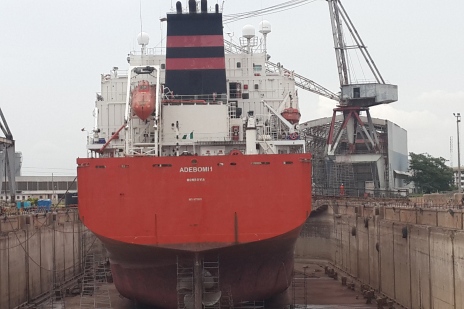Pay greater attention to ship and crew proficiency – Ministers
 Delegates at the third Ministerial Conference on the Abuja Memorandum of Understanding on Port State Control, are to pay greater attention to ship and crew proficiency, alongside the focus on eliminating sub-standard shipping.
Delegates at the third Ministerial Conference on the Abuja Memorandum of Understanding on Port State Control, are to pay greater attention to ship and crew proficiency, alongside the focus on eliminating sub-standard shipping.
Mr. Chibueke Rotimi Amaechi, Vice Chairman of Abuja MoU and Minister of Transportation of the Federal Republic of Nigeria, said while it was important to ensure that sub-standard shipping was eliminated from African seas, it was also important to pay attention to the proficiency of the ship and crew.
“This is particularly important because an incompetent crew can turn the most modern vessel into a potential hazard, culminating into loss of lives, property and pollution of the maritime environment,” he said.
He was speaking at the opening of the Third Ministerial Conference of Abuja MoU on Port State Control, in Accra on Wednesday, on the theme: “Tightening the Net- Regional Cooperation to Eliminate Sub-Standard Shipping”.
Mr Amaechi said sub-standard ships will clog the coastlines of member states with attendant ecological consequences and damage to the marine environment.
He said the deployment of various methods, such as regional training workshops, by the Abuja MoU, to ensure that Port State Control inspections were carried out in uniform manner in the region, as well as the adaptation of uniform detention mechanisms.
He called on the ministers to ensure that their maritime administrations took full advantage of the trainings and also clearly identify and engage stakeholders to boost the effectiveness of Port State Control and foster cooperation in the drive to eliminate sub-standard shipping.
Mr Lawrence Barchue, Assistant Secretary General, who represented the Secretary General of the International Maritime Organisation (IMO), noted that the Abuja MoU had contributed to ensuring that ships that set out from the region presented no apparent risk to safety of life at sea and the environment.
He however noted that there were still two major challenges that the ministers needed to address as a priority.
These challenges were the shortcomings in port state control revealed by the audit of a number of IMO’s mandatory instruments in nine member states.
“The most significant of those findings is the absence of adequate national legislation for the exercise of the right of the state to carry out port state control,” he said.
He added that the issue of human resources and lack of appropriate qualification of some port state control officers also needed attention.
He urged the ministers to ensure that proper and up to date national legislation was enacted to support their maritime activities where necessary.
“I would also welcome your commitment in ensuring that the corrective action plans that have been submitted by your administrations are implemented and reported on to IMO as required,” he said.
Mr Kwame Owusu, Director General of the Ghana Maritime Authority, said the essence of Port State Control was to ensure that maritime species were protected from contamination by pollution and to ensure that ships that operate on the region’s waters were safe to protect human life and property.
He noted that the arrangement under the Abuja MoU where ships inspected in a member state will not be re-inspected at the next port of call within a specified timeframe, complimented Ghana’s drive for port efficiency.
Source: GNA
